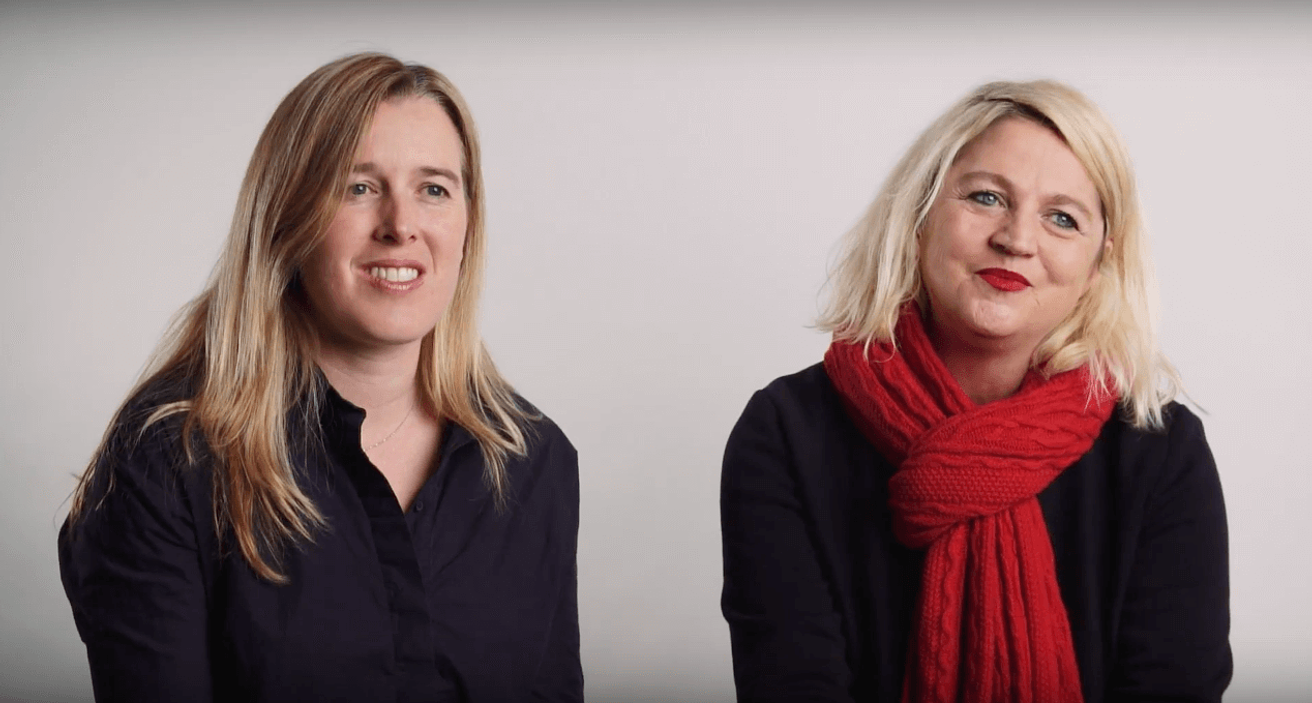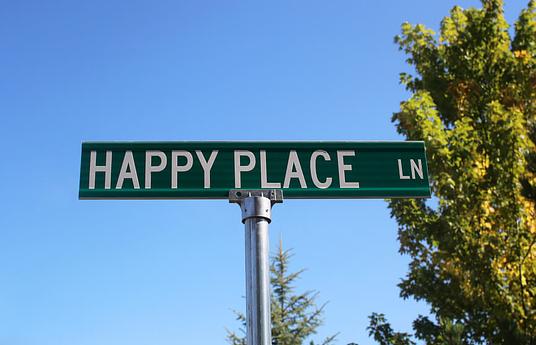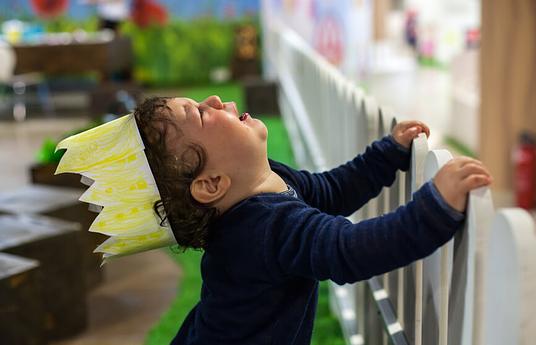Kerstyn Comley, Education Technologist, and Suzi Godson, Psychologist and Journalist, are the co-founders of MeeTwo, an app that provides an early intervention support solution to the problem of teenage stress and anxiety. MeeTwo was selected as one of HundrED's 100 Global Inspiring Innovations of 2017.
Please introduce your innovation
Kerstyn: Meetwo is an app that makes it easier for teenagers to talk about difficult things. There’s been an unprecedented escalation in the levels of depression and anxiety, in teenagers in both the UK and around the world and we wanted to do something about this so we started with talking to young people to find out what solutions they wanted.
Suzi: We then took all the latest research on what helps young people to cope and we married it up with our pilot data from the young people and developed MeeTwo, which allows young people to help each other. It’s based on the peer support model, but it’s anonymous, it’s 100% moderated and it combines in-built educational resources which are developed in response to what the young people are talking about.
How has your innovation had impact on mental health in schools?
Kerstyn: In a way our set up is really useful because obviously we’re collecting all this data because people are posting and replying and we often see young people coming back onto the app to say thank you that's really helped or this is what’s happened to me now, so we can very easily track the journeys of these young people as they’re experiencing practising getting support and then going on to get it. We’ve seen some fantastic examples of young people who’ve discussed going talking to counsellors or school nurses, saying should they should do it, that they don’t feel confident, right through to the point where they actually do it and they come back and say I’ve had my first session and it was really helpful. My all time favourite is one user who has been on a lot and clearly needed a lot of support and finally posted to say thank you to us because they said today I managed to go into a cafe and order a coffee and a snack and I’ve never been able to do that before, and that always gets me - it’s amazing to see that journey so completely.
Suzi: I suppose in a way the app is unusual because it's all so obvious, anyone who looks into our app and looks at individual users see's how they are using the app and changing. What it also shows our users is that there are ups and there are downs, it's not linear, you don't start out sick and get better. People use it, they feel better, they get worse, they come back and use it again and that is very very important because we need to normalize the idea that anxiety is an everyday part of life and what you need is to know how to cope. You’ll never be able to get rid of it, there are issues these kids are dealing with that nobody will ever be able to change, society will never be able to change and the only thing we can do is equip them emotionally so they know how to ride out the difficult times and get through.
Kerstyn: We also see with the app, it's very easy to influence kids, so the app is doing that in a positive way and it’s because their peers are doing it - so when one person comes back and says thank you for that help, you then see several other people come back and say thanks. And we really appreciate that the peers themselves are spreading positivity and that’s very encouraging.
Suzi: We also think it demonstrates how social media can really be a force for good, it gets an awful lot of bad press but actually the things that are happening, utilized in the right way and with the right safeguards and regulations in place, can be a phenomenal force for good; it’s an amazing communication tool, it’s a way of connecting people together, it’s a way of offering kids the opportunity to learn from each other, those are all amazing, but it just needs to have the right safeguarding in place.
What is the biggest challenge facing education right now?
Kerstyn: The data that we see coming through from MeeTwo shows us that in the UK, at least, the educational system puts young people under huge amounts of pressure and really it’s a top down problem; the government puts pressure on Ofsted (The Office for Standards in Education) who puts pressure on the teachers and then you’ve got the parents as well trying to meet all these expectations and the poor kids are actually caught in the middle and that’s a real worry because it’s actually impeding their abilities to thrive.
Suzi: The data which is emerging is currently showing that 1 in 4 girls aged 14 in the UK is depressed, 1 in 10 children suffer from a generalized anxiety disorder and the average age of onset is 8 years old. Clearly, there’s something fundamentally wrong and so we think that so much more emphasis has to be placed on mental wellness and positive attitudes to mental health within schools.
Why is it important to address mental health in education?
Kerstyn: I think what we actually have to do is change the conversation, I think we need to stop talking about mental health and start talking about mental wellness and education is the starting point, the entry point into all that and we need to be giving young people the skills to help them cope with the challenges they face everyday, Anxiety is a perfectly normal part of everyday life but at the moment because they don’t have those skills they don’t know how to deal with it and that’s when the problems start to escalate.
Suzi: One of the reasons it’s so important to start early and start with younger children is not only because we see that the age it starts to manifest is as young as 8, but half of all adult mental health problems have manifested by the age of 14 and 75% of them have manifested by the age of 21, so this is something that really has to be tackled early.
At the moment the cost to the UK government is £105 billion a year so it’s an economic issue as well as a quality of life issue. The conversation is growing in terms of chatter about mental health being a problem, but as Kerstyn said, unless we turn it into a positive conversation about positive psychology and coping mechanisms and how it's actually easy to tackle these problems if we can get people talking about it and get people more relaxed and the idea that you have ups and downs and you can get help and support, things are going to carry on getting worse we feel. It’s a changing world and we need to give kids the capacity to cope with how to survive in an ever changing world, in a system which seems very old fashioned and not willing to listen.
Kerstyn: The other thing we see with the work we do is that the youth voice is really missing, in the media or wherever it’s so often adults talking about children’s mental health problems, so a lot of the work we do with MeeTwo is to try to give the space to give young people a voice to tell us what they are worried about, what their problems are and also how they think it can be solved and we think that will actually be the most powerful way, to make the young people the advocates for change.
Suzi: One of the reasons MeeTwo works well is because we do have a lot of users who are already in the mental health system so they are with CAMHS (Child and Adolescent Mental Health Service) and we have kids who are just beginning to rehearse what it feels like to come out and admit they have a problem and we have other kids who are much further down the line and those young people are using their experiences to help people at the beginning of their journey. And it is that peer interaction, that actually often the people that young people will listen to is other young people, they will screen out adults, professionals, teachers, but when it comes from somebody who is speaking in their own voice, on their own experiences as a young person, it makes it more acceptable and more accessible and that’s really important.
Kerstyn: What we often overlook in schools is the fact that we teach them all these academic subjects like maths or science or English but what we also need to teach young people is emotional literacy and we see that very much with the different schools that we work in, that in schools that have more developed programmes the young people find it much easier, boys particularly find it much easier, to talk about their problems and then get solutions and help - in schools where it’s ignored young people are incredibly embarrassed or very uncomfortable, so that’s about breaking down those barriers and schools are completely positioned to do that.
Suzi: One of the problems is that boys find it harder to seek help but girls tend to monopolize available help, so we’re incredibly lucky, well it’s not by accident, it’s by design, because anonymity is central to our offer, we have a much higher percentage of boys using our app than would ordinarily be using any social media that was about mental health or alleviating anxiety and that’s quite difficult to do within a school setting where any kind of counselling is face to face and boys are much more resistant to the idea of coming forward. So for example girls are much more likely to talk about suicidal ideation or quite dramatic experiences, boys don’t talk about it, but suicide is the biggest cause of death for men under 35, they take action and it’s absolutely critical that we get to them early and teach them when they’re very young that it’s OK to ask for help.
The next 100 years of education should…
Kerstyn: For me, the next 100 years of education should look beyond academic subjects, should look beyond just trying to teach what we are used to in the curriculum and what we’ve been teaching for the past 100 and 200 years and we need to recognize that to equip young people to go out into the world and be helpful, healthy, compassionate adults we need to teach them about relationships and how to communicate and so many other skills that we just ignore in schools because we’re too dedicated to a very fixed and narrow curriculum.
Watch Kerstyn Comley and Suzi Godson introducing MeeTwo at the HundrED Innovation Summit, 2017.





